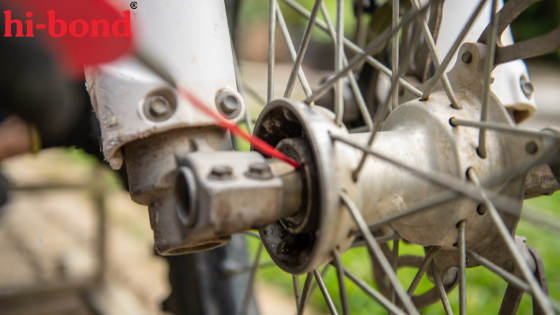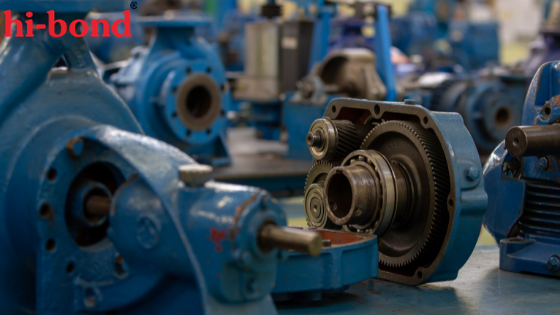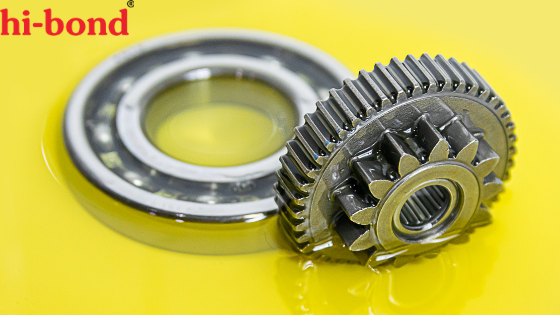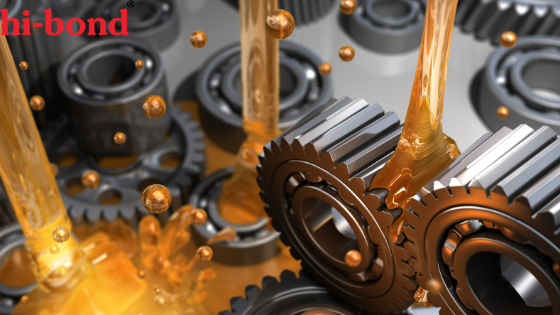Let’s read a simple analogy to understand a complex problem. The human performance of any activity is directly dependent on its bones. Though there is a related mental aspect, your body cannot perform the activity without using the bones.
Similarly, for the majority of machines’ performance, they depend on bearings. Even though there are other technical aspects, the actual performance fails without bearings.
This describes the absolute importance of bearings in several industrial spaces. Likewise, how bones are fuelled by proper nutrition, bearings need lubrication for optimal performance.
Before knowing the common mistakes of bearing lubrication, let us see why it is important.
Importance of lubrication

-
Reduces friction
The most important purpose of lubricating machinery is to reduce friction. Proper use of lubricants allows the moving parts and stationary parts to work in unison.
-
Absorbs shock and reduces wear and tear
Proper lubrication and machinery longevity go hand-in-hand. They reduce the bearings’ wear and tear by acting as shock absorbers.
-
Controls operating temperature
Due to high friction, the temperature tends to rise. With ideal lubrication, the operating temperature can be regulated.
Apart from these, lubrication is also needed to minimize corrosion of the components. So, the integrity of the machine is completely dependent on the bearings which are further dependent on its lubrication. Hence, bearings and bushes suppliers stress the importance of proper lubrication.
But, for an activity of this importance, lubrication is seldom done right. More than 40% of the bearings do not come close to finishing their estimated life due to bad lubrication. Being a primary cause of bearing failure, improper lubrication needs to be halted.
Meanwhile, here are three common and major mistakes of bearing lubrication.
Improper lubrication schedule
No bearing manufacturing company will advise on lubricating the bearings only when there is a situation. Yet, the majority think about lubrication as a last resort for their bearings.
On the contrary, lubrication needs to be habituated for the best bearing life. Designing and maintaining a lubrication schedule is extremely important.
This schedule varies from bearing to bearing and is also influenced by other factors. The volume of operations, load, temperature need to be considered for the right schedule.

First off, monitor the friction levels of the machine. This provides a quantifiable measure to understand its efficacy. To reduce the friction levels, adequate lubrication is needed.
Several industries use ultrasound to check the friction levels and it helps with understanding the bearing’s health.
Apart from this, manual and visual inspection is necessary. From a visual check of the runway to manually touching the film, they need to be customary checks.
With the right experience and training, these inspections and their results can conclude with the best judgments. Based on this, alterations like increasing the frequency or changing the lubricant can be done.
These maintenance checks also further help in detecting corrosion and contamination. Not all bearings and bushings are easy to access for routine maintenance. So, using trigger alarms or optical sensors can help.
Under and over lubrication
Another popular mistake regarding bearing lubrication is a twofold one. This concerns the amount of lubrication used for bearings. Both inadequate lubrication and over lubrication are detrimental to the health of the bearings.
By under lubricating, the functionality of the bearings is halted. The friction increases between the components reducing the machine’s efficiency. Likewise, it also results in the need of replacing the bearings regularly.

For the firm, this increases both costs and the efforts required to get the machine working. Not only these, but it also increases the machine downtime which eats into its productivity.
On the flip side, over-lubrication creates unnecessary pressure between the components. This leads to the derailing of the machine’s efforts. This increases friction as the components have to work harder to move amidst the grease muddle.
The increased friction and the undue pressure increase the operating temperature of the machine. All these factors combine to render the bearing useless, thereby rendering the machine useless.
Bearings manufacturers provide a recommended level of lubrication. However, based on the load and frequency, the optimal amount of lubricants must be decided upon.
Finding the right amount of lubrication needed and providing the same have a chain of benefits. A machine with the ideal amount of lubrication needs less power to operate. This means a lowered need for electricity. And machines that consume less electricity are comparatively cooler. Furthermore, machines with a cool operating temperature have a longer life span.
All these benefits can be availed by using the right amount of lubricants and at the right time.
Using wrong lubricants or abusing lubrication protocols
Not all lubricants are ideal for a machine. There is a diverse range of lubricants available with each of them serving different purposes.
The base oil type and viscosity are two important factors to keep note of regarding lubricant type.

It is similar to using a certain fuel type for a vehicle. Each bearing manufacturing company specifies the ideal lubricant type for their bearings. Abiding by them is the best bet.
Using wrong lubricants or using lubricants with wrong viscosity doesn’t only hamper the bearings’ performance. But also, it causes widespread damage within the bearing.
Furthermore, abiding by lubrication protocols is important. From storing them properly to safe transportation, there are several vital measures to obey.
Bearing lubrication needs to be done in a favorable environment. This reduces the potential for airborne contamination and temperature fluctuation. These are tiny but critical factors that influence the efficiency of bearing lubrication.
Apart from investing in high-quality bearings, maintaining them and creating an efficient workflow is more important.
Bearing lubrication is one of the most abused activities in the manufacturing sector. Proper training and education can help overcome the aforesaid mistakes.
Conclusion:
For an efficient and safe bearing utility, both the components and processes are important.
Providing both of them with the highest quality is Hi-Bond — a leading bearing manufacturing company. They tailor their solutions and provide customized bearings for your firm.


